RTX and DLSS Analysis
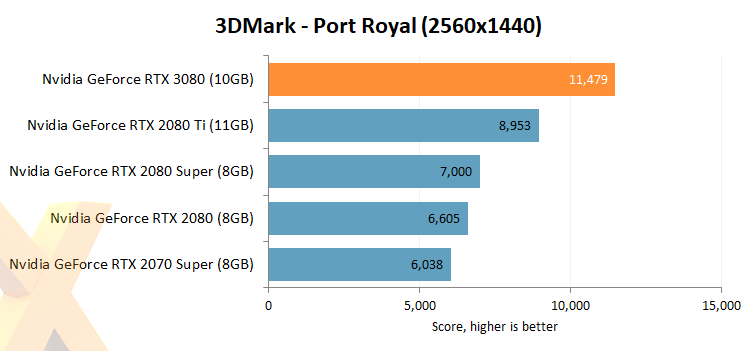
Nvidia makes plenty of noise about raytracing and DLSS. We can examine RTX performance in various ways. The 3DMark Port Royal benchmark keeps the same sort of performance progression that's evident in rasterisation-only titles.
GeForce RTX 3080 is 64 percent faster than RTX 2080 Super and 28 percent speedier than RTX 2080 Ti.
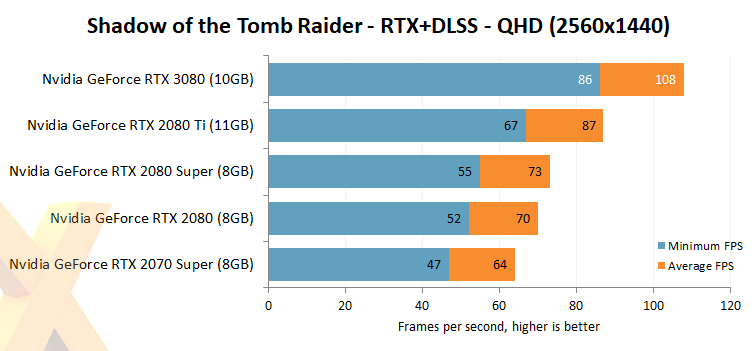
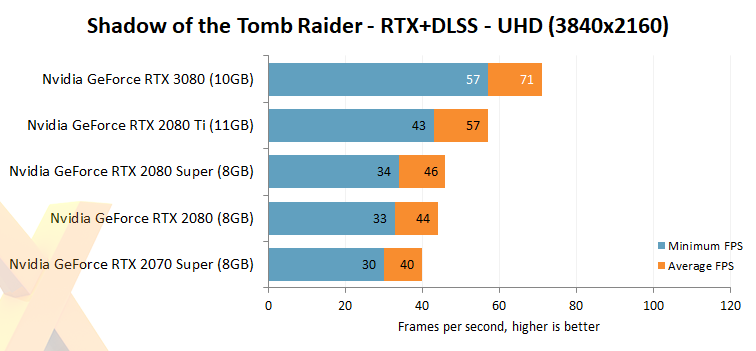
Looking at first-gen RTX/DLSS performance we run Shadow of the Tomb Raider at RT Ultra and DLSS active on QHD and UHD resolutions.
By doing so we see very good framerates in both cases, but the gap to RTX 2080S is actually less than running it with no RT/DLSS active, as on the previous page.
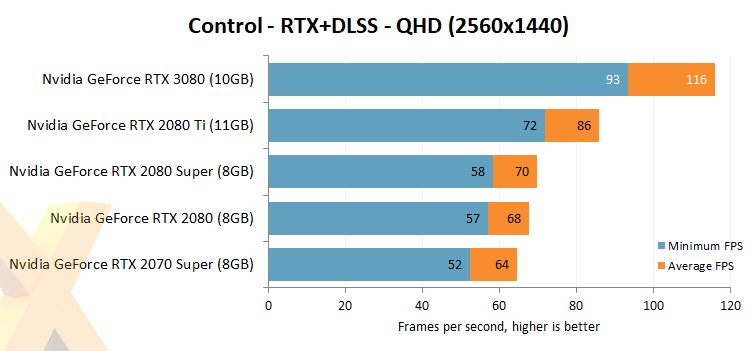
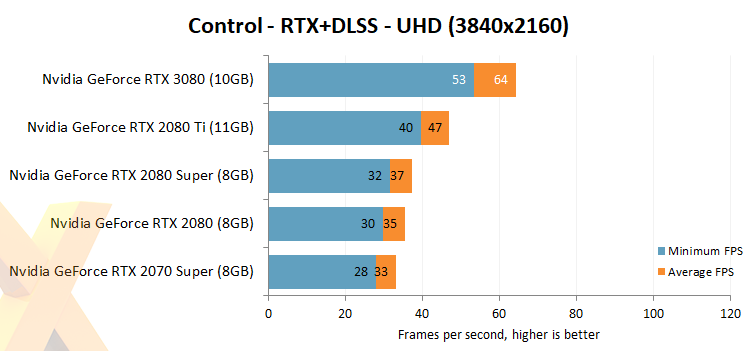
It is therefore important to look at a title that has a best-in-class implementation of RT/DLSS. We run Control with quality levels set to high, RTX to high, and DLSS to the highest available setting.
On GeForce RTX 3080 the performance at this setting is about the same as running no RT/DLSS, evaluated over five scenes with varying levels of reflections. That's a win in itself, and you can compare large screenshots (11MB) with RTX/DLSS on and off.
Performance wise, 3080 is 73 percent faster than 2080S and 36 percent than 2080 Ti, representing a best-case scenario for this new generation of RTX cards. Those extra frames are important, too, as they elevate 4K performance from sticky to pretty damn smooth.


